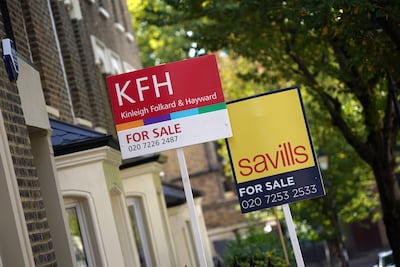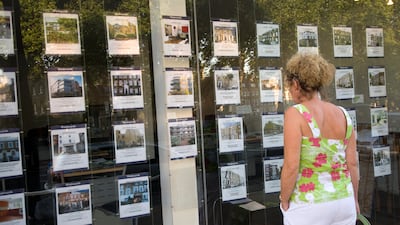The problem with owning property is that it’s hard to move.
And, if the rumours are true, UK Chancellor of the Exchequer Rachel Reeves, desperate to raise funds but refusing to confront Britain’s structural problems, may be about to reach for the one thing that can’t run away: housing.
The truth is, after the Covid-19 pandemic, millions more people were parked on benefits. Welfare became the country’s single biggest growth industry. Now, instead of fixing this, the governing Labour party is going back to type: tax and spend, the playbook used by former chancellor and prime minister Gordon Brown. And if Ms Reeves reaches for a “mansion tax” or capital gains levy on family homes above £1.5 million (about $2 million), she will be detonating the last working engine of the British economy: property in London and the country’s south-east.
Britain is already one of the most taxed countries in the developed world when it comes to property. The Organisation for Economic Co-operation and Development ranks it number one in property taxes as a share of the gross domestic product. Remember France tried it, too, and watched its wealth and talent flee. The US, for now, treats primary homes far more leniently. And the places people are running to – Dubai, Singapore, Milan – are doing the exact opposite of what Ms Reeves is floating. They’re rolling out the red carpet for capital while Britain is rolling out His Majesty’s Revenue and Customs authority.
This isn’t just about billionaires. The families targeted by Labour are middle-class professionals in the south-east, the doctors and small business owners. Basically, anyone whose homes have risen in value but whose incomes are finite. These are people who’ve already shelled out tens or even hundreds of thousands in stamp duty, and now they’re told their primary residence will be treated like a speculative asset. They are the people paying the lion’s share of income tax, value-added tax and council tax. Labour’s message to them is clear: thanks for holding the country up, now here’s another kick in the teeth.

Markets know what’s coming. Government bond yields surged last week, signalling that investors are losing confidence in Britain’s fiscal credibility. That isn’t some footnote in the finance columns; it translates directly into higher mortgage rates, more expensive borrowing for businesses and a weaker pound. If Ms Reeves drives down house prices on top of that, the ripple effects will hit everything: banking, consumer spending and construction.
Property is not just an asset class. It is the collateral behind lending, the foundation of small business creation and household wealth. It’s the biggest psychological driver of consumer confidence. Destroy it, and you destroy everything.
The exodus has already begun. Non-doms have left. Wealth is flowing to the UAE, Singapore, Milan and elsewhere. Demand for London’s top-end property is down, and agents are already reporting price corrections. Ms Reeves may pretend this hasn’t dented revenue because VAT receipts look fine. But you can’t measure what never arrives: the businesses that never set up, the jobs that never came, the tax base that never grew.
“Easy to tax, hard to sell,” billionaire investor Ray Dalio once said of real estate. He’s right. But the minute you make property toxic, people draw the obvious conclusion: if they tax it once, they’ll do it again. That’s how capital flight becomes permanent. That’s how countries end up at the International Monetary Fund, begging for loans.
Labour thinks punishing property owners will rally its base of renters and public-sector workers. But it is a losing bet. Mr Brown’s raids on pensions and property helped leave Labour unelectable for nearly 15 years. His predecessor, Tony Blair, in the early years at least understood that Old Labour economics was a death wish. That’s why he invented New Labour, and why he won. Ms Reeves is throwing that lesson away.
Britain doesn’t need another redistributive stunt. It needs growth. It needs spending discipline. It needs a welfare system that doesn’t consume half the budget and keep millions idle while the rest foot the bill. But instead of fixing the problem, Ms Reeves wants to strangle the last working engine left.
Do this, and Labour won’t just sink the housing market. They’ll sink Britain. And, just like Mr Brown, they’ll sink themselves out of power for another generation.


